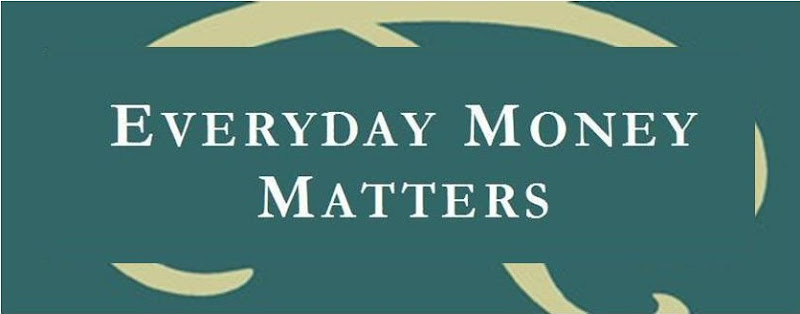Reprinted
with permission from the American Association of Daily Money Managers (AADMM).
Copyright 2012. For more information about AADMM visit www.aadmm.com.
The Challenge – Caring For Your Aging Parents
Caring for an aging loved one is an emotional and stressful situation. Many baby boomers – anyone born between 1946 and 19641 – struggle to manage the needs of their own children and grandchildren, while assisting their aging parents. Also referred to as the sandwich generation, approximately 77.3 million Americans comprise the baby boomer population.
Trying to balance all the caregiving responsibilities of your family is a daunting task and can greatly
impact your own quality of life. Managing the financial affairs of an aging parent is a major component in the caregiving process. Today, many baby boomers are alleviating this financial stress through daily money management services.
What does a daily money manager do?
A daily money manager (DMM) brings clarity and order to an individual’s daily management of personal bills, budgets and record keeping. A DMM assists clients with activities such as bill paying, day-to-day banking, budgeting, insurance paperwork, and organizing records and receipts in preparation for income tax filing.
Who needs the help of a daily money manager (DMM)?
A research study Conducted by the Brookdale Center for Healthy Aging and Longevity of Hunter College states: “For vulnerable older adults, management of daily financial obligations can become an overwhelming burden, quickly spiraling into adverse behaviors and at-risk situations such as unpaid bills,un-deposited checks, and the terrifying consequences of cut-off utilities, bank foreclosures, evictions, and financial exploitation.”
An experienced daily money manager (DMM) can provide day-to-day personal financial services for elderly parents, giving peace of mind to children that their parents’ financial affairs are being taken care of properly and professionally.
Hiring a DMM may allow some seniors with health challenges to avoid guardianship and a complete loss of independence.
What sorts of tasks do DMMs typically handle?
In addition to bill paying, day-to-day banking, budgeting, and records organization, many DMMs are experienced with handling Medicare and other insurance paperwork. This service eliminates the stress and confusion that often comes with these tasks, offering seniors and their families increased peace of mind. Also, a DMM can be a vital link to help senior citizens access community resources they may not even have known existed. Many DMMs are very knowledgeable about social support services for seniors – from Medicare home health benefits to Meals on Wheels.
If I hire a DMM for myself or my parents, do I/we still need an accountant, financial advisor, lawyer, social worker, or geriatric care manager?
Daily money managers are not financial planners or advisers. Although some DMMs may be separately certified or licensed in these areas, they do not take the place of accountants, attorneys, investment advisors or social workers, but rather complement services provided by these professionals.
DMMs are often “team builders” for their clients, bringing to the client’s table the right professional financial services such as accountants, elder and trust attorneys, financial planners, geriatric care managers or social workers. Most often the DMMs have no exclusivity arrangements so the client can make clear choices.
How frequently do DMMs generally visit their clients?
Daily money managers understand that each client has different needs so visits are scheduled based on the tasks being performed, and the individual’s goals and availability. A client who needs help paying bills due to dementia issues may receive weekly visits from the DMM while another client may only see the DMM face-to-face occasionally because the statements and bills are managed online or because the type of work they are assisting with does not require as much time. When establishing a schedule, DMMs take into account the client’s needs, costs and time.
Does hiring a DMM involve giving up control of my or my parents’ money?
Absolutely not. A DMM’s role is to offer a "best of both worlds" scenario, where the clients retain control of
their money but are freed from the responsibility of executing daily financial tasks. In many instances, DMMs work closely with the client's financial advisor – assisting the advisor with the implementation of the client's financial plan at the hands-on level. In this sense, a DMM’s role is to help clients, with their advisors, maintain control.
Does hiring a DMM result in loss of independence in any way?
No. In fact, a DMM can help individuals keep their independence longer by assisting with all facets of personal financial affairs. Trouble staying on top of personal financial affairs is often the first sign that a senior may be becoming overwhelmed with the responsibilities of independent living. By removing that issue from the situation, DMMs are often instrumental in helping individuals remain independent for longer.
What should I expect the services of a DMM to cost?
Some DMMs offer a free initial consultation -- ask in advance for their policy on first meeting charges. Most DMMs charge for their services on an hourly basis, with rates ranging from $46 - $150 per hour; however, rates may vary greatly based on factors such as geographic location and type of service provided.
In addition to the hourly rates, most DMMs charge for their travel time and for out-of-pocket expenses such as postage stamps provided to their clients and long distance charges for calls made on a client’s behalf.
Be sure that you understand the billing arrangements before the work begins. Some DMMs request payment at the time of service and others bill on a monthly or bi-weekly basis. Some local governments have reduced fee or free services available for low-income clients. Visit the AADMM volunteer outreach page to learn more and view a listing of agencies by state.
How can I locate a DMM in my area, or near where my parents live?
You can find a DMM in your area by visiting www.aadmm.com and clicking on “Find A DMM,” which allows you to search by state, city or ZIP code. Individuals are also often able to find a DMM through a referral by a lawyer, accountant or social worker.
How do I know I can trust this person to whom I would be providing so much sensitive
information?
AADMM members are expected to adhere to a strict code of ethics and standards of practice. AADMM promotes excellence in services through a voluntary certification program that emphasizes both experience in the field and continuing education. Certified daily money managers, called Professional Daily Money Managers (PDMM), must also submit to criminal background checks.
What questions should I ask when I interview a prospective DMM?
The type of work DMMs handle for their clients is highly personal and confidential. Whereas your personal judgment and instincts are important in determining the honesty of any professional with whom you may do business, you can take additional steps to safeguard yourself against becoming involved with a dishonest person.
First, ask for a referral from someone you know and trust, such as a friend, relative, lawyer, accountant, or doctor. If none of these people can put you in touch with a DMM and you must hire a basically "unknown" person, be ready to address the following issues before hiring a DMM:
Top 10 Questions to Ask When Hiring a Daily Money Manager
- What types of services do you provide? (Do you only do bookkeeping, or are there other ways that you can be of assistance?)
- How long have you been working as a daily money manager?
- What kinds of professional insurance do you have?
- Are there industry standards and code of ethics to which you adhere?
- Are you willing to work with other advisors, for example, my financial advisor, tax accountant or attorney?
- What are the costs of your services and what are the common billing methods?
- How often do you usually visit your clients and what do you charge for travel, if anything? Would it be possible for you to assist me remotely, if necessary?
- Do you require and/or provide a contract?
- What about confidentiality?
- Can you provide a reference list?
professional; it may include a personal reference. Take the time to call the references on the list,
asking them whether the DMM is: respectful, dependable, efficient, empathetic, and professional
in manner. Ask if there have been any conflicts, and if so, how they were resolved. Find out if
asking for explanations of things not understood has been a comfortable situation.






No comments:
Post a Comment